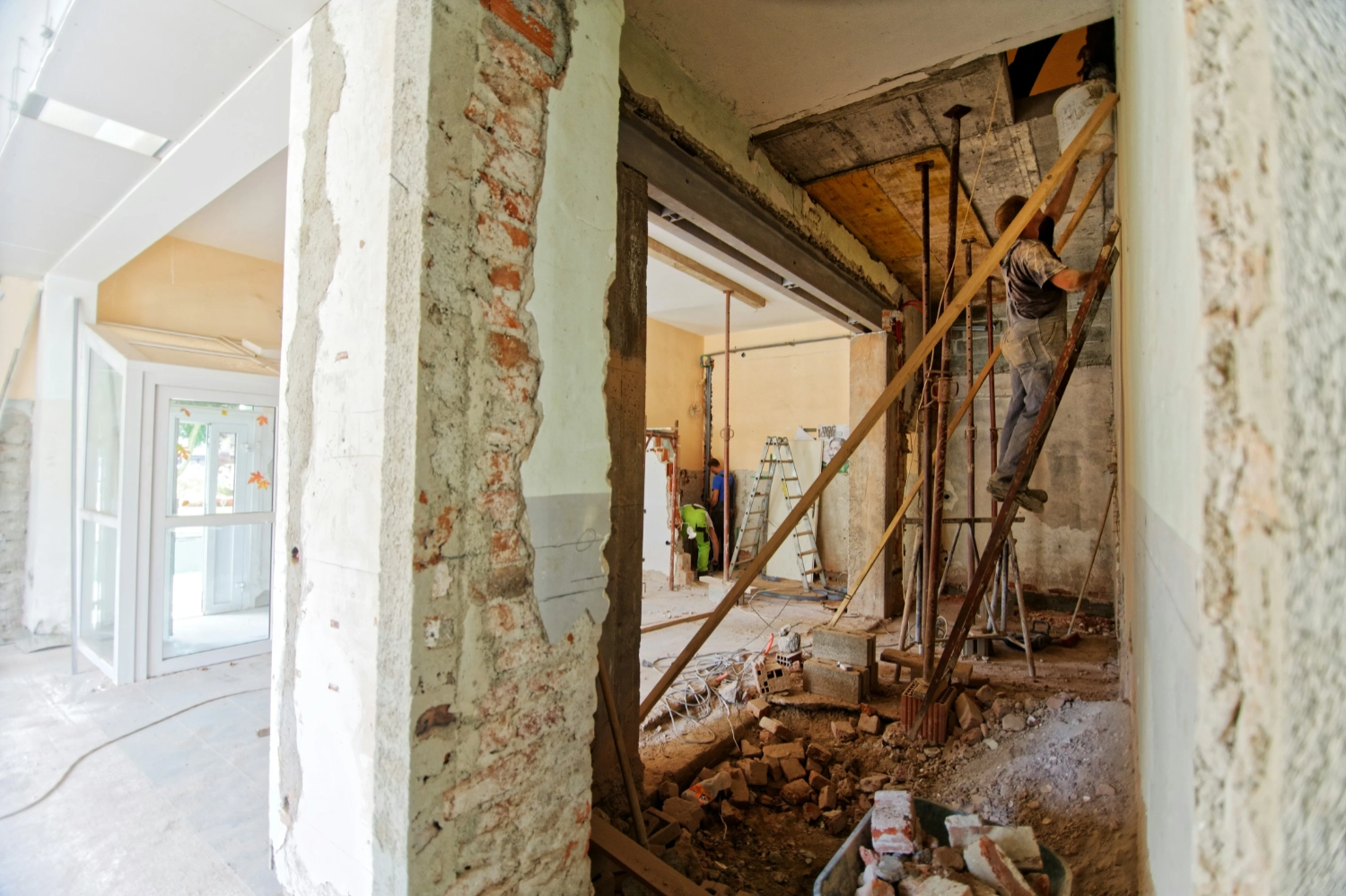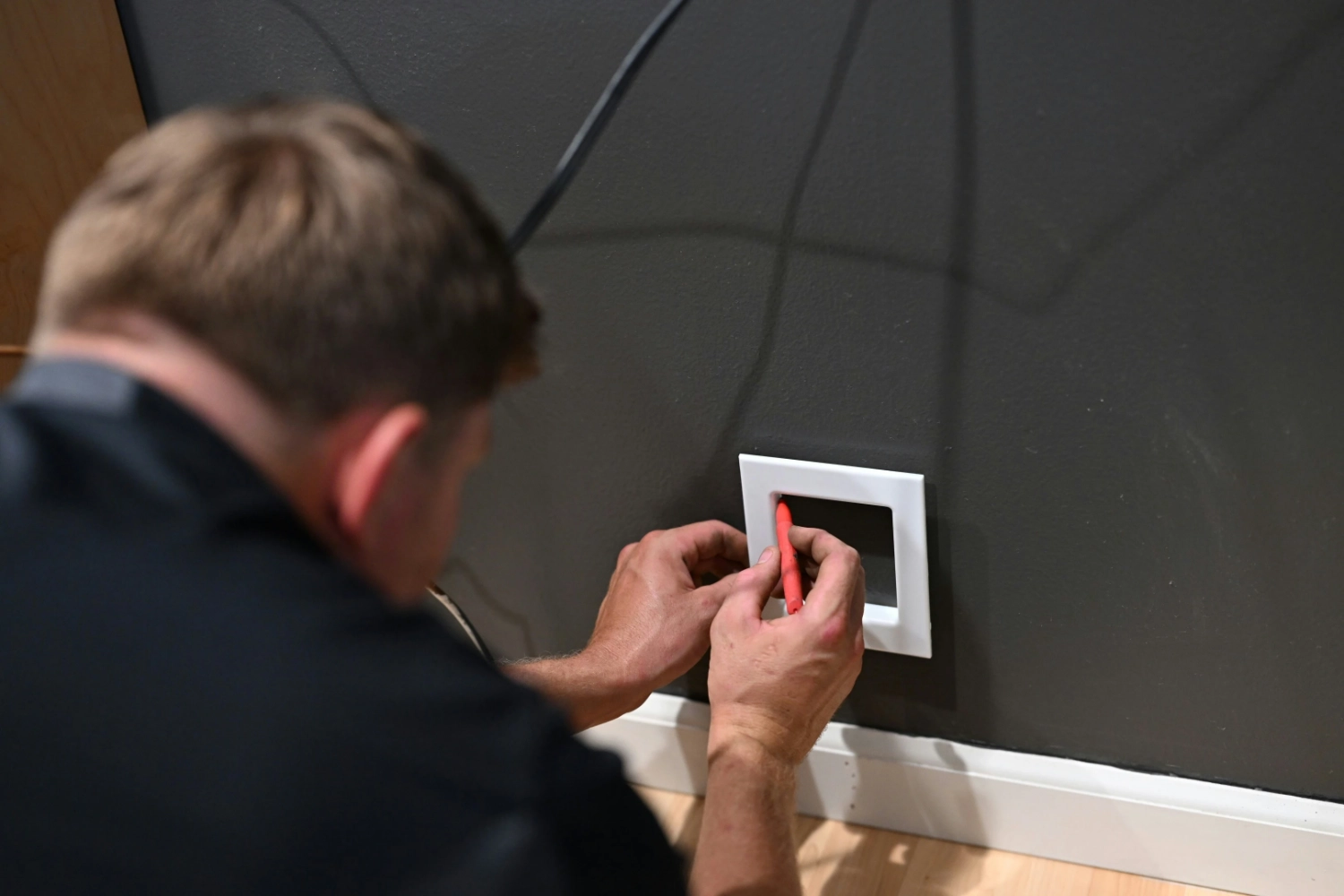Landlord Responsibilities for Repairs: A Guide For Renters

In the United Kingdom, landlords are legally required to ensure that their rental properties are kept in a safe and habitable condition for their tenants. This duty includes carrying out necessary repairs and ongoing maintenance of the property, addressing any issues that may arise to prevent hazards to health and safety. The responsibility covers various aspects, such as the structure and exterior of the property, plumbing, heating, gas and electrical systems, and ensuring the proper functioning of sanitary installations like baths, sinks, and toilets.
Failure to comply with these legal responsibilities can lead to significant consequences for landlords. They may face penalties including fines, enforcement action from local authorities, or court orders compelling them to make necessary repairs. Tenants, on the other hand, have the right to take legal action if their landlord neglects their duties, which may involve suing for compensation, rent reductions, or forcing repairs through the courts.
What Legal Obligations Do Landlords Have For Making Repairs?
1. Landlord and Tenant Act 1985
Section 11 of the Landlord and Tenant Act 1985 outlines one of the most fundamental legal obligations for landlords in the United Kingdom: the duty to maintain and repair certain key aspects of their rental properties. Under this Section, landlords are required to ensure that the structure and exterior of the property are kept in good repair. This includes the roof, walls, foundations, windows, doors, and other external features. Additionally, landlords are responsible for maintaining drains, gutters, and external pipes, ensuring that water can flow properly and that the property remains structurally sound and free from damage caused by water ingress.
Furthermore, the landlord must ensure the proper functioning and upkeep of installations that provide essential services to the property. This includes the supply of water, gas, electricity, and sanitation, covering vital components such as basins, sinks, baths, toilets, and any associated piping or wiring. Landlords are also obligated to maintain installations that provide central heating and hot water, ensuring that tenants have access to reliable and safe heating systems, especially during colder months.
2. Housing Act 2004
One of the key provisions introduced by this Act is the Housing Health and Safety Rating System (HHSRS), which sets out the legal framework to ensure that rental properties are free from hazards that may pose risks to the health and safety of tenants. The HHSRS is a risk-based evaluation system designed to identify and assess potential hazards in residential properties. Landlords are legally required to take action to minimise or eliminate these hazards to provide a safe living environment for their tenants.
The introduction of the HHSRS under the Housing Act 2004 places a greater responsibility on landlords to proactively manage and maintain their properties. If landlords fail to comply with their obligations under the HHSRS, tenants have the right to report unsafe conditions to their local authority, which can then investigate and enforce improvements.
This article from Shelter explains the HHSRS in a good level of detail.
3. The Homes (Fitness for Human Habitation) Act 2018
This requires landlords in the UK to ensure that rental properties are safe and habitable at the start and throughout the tenancy. Properties must be free from serious hazards such as damp, structural issues, faulty electrics, and inadequate heating or ventilation.
Tenants have the right to take legal action if their home is unfit for habitation, seeking repairs or compensation. Landlords must address issues unless caused by tenants or unavoidable events. The Homes (Fitness for Human Habitation) Act 2018 improves housing standards by holding landlords accountable for providing safe and livable homes.

What Specific Repair Obligations Do Landlords Have?
Structure and Exterior
Landlords are legally obligated to maintain the structural integrity of the rental property to ensure it remains safe, secure, and livable for tenants. This responsibility includes the upkeep and repair of key structural components such as the walls, roof, foundations, windows, doors, and drains.
Utilities and Installations
Water Supply and Sanitation: Landlords must repair and maintain plumbing and sanitation facilities such as toilets, sinks, baths, and showers. The water supply must be clean, and drainage systems must work properly to prevent issues like leaks or blockages.
Heating and Hot Water: Landlords are responsible for ensuring that heating systems and hot water installations function properly throughout the tenancy. Any breakdowns should be promptly repaired to ensure tenant comfort and safety.
Gas and Electrical Safety: Landlords must perform annual gas safety checks and provide tenants with a Gas Safety Certificate. Electrical installations must be safe, with periodic inspections conducted (typically every five years), and any issues must be repaired to prevent hazards.
Common Areas
In buildings with multiple units, such as apartment blocks or houses converted into flats, landlords have a responsibility to maintain the common areas shared by all tenants. This includes spaces such as hallways, staircases, entrances, lobbies, and shared gardens or outdoor areas.

What Health and Safety Requirements Do Landlords Have When Making Repairs?
Gas Safety
Landlords must have all gas appliances, flues, and fittings inspected annually by a Gas Safe registered engineer. This ensures they are safe and in good working order. After the check, landlords must provide tenants with a copy of the Gas Safety Certificate within 28 days. For new tenants, the certificate must be provided before they move in. Landlords should keep a copy of the certificate for at least two years. Failure to comply can lead to legal penalties and increased safety risks.
Electrical Safety
Landlords must have electrical installations inspected and tested by a qualified electrician at least every five years. This helps ensure safety and identify any potential hazards. After the inspection, landlords must provide tenants with an Electrical Installation Condition Report (EICR) within 28 days. This report details the safety and condition of the electrical system. Landlords should keep a copy of the EICR for at least five years. Failure to comply can lead to legal consequences and safety risks.
Fire Safety
Landlords must install working smoke alarms on every floor and carbon monoxide detectors in rooms with solid fuel-burning appliances. They must regularly check both devices, inform tenants about their locations and how to respond if an alarm sounds, and ensure compliance with safety regulations to avoid legal penalties and protect tenant safety. Find out more about the responsibility for smoke alarms and carbon monoxide detectors.

What Are Tenants’ Reporting Responsibilities For Repairs?
It is important to note that while landlords are legally responsible for repairs, tenants also have obligations to use the property in a tenant-like manner; this would include minor maintenance tasks such as changing light bulbs and keeping the property clean.
The Tenants Voice offers some good advice to tenants: “Polite and effective communication between you and your landlord is vital to a positive rental experience. Should you have to move on and require a reference, the care you have demonstrated as a tenant will reflect in the reference your landlord gives you.”
Tenants are expected to take care of the property and avoid causing damage through misuse or neglect. They should report issues beyond their responsibility.
Landlord blogger Suzanne Smith states in her article 'What are landlords’ obligations to carry out repairs in England?' “As tenants can be reluctant to report small issues, I inspect my properties myself every six months. Not so much to check up on how the tenants are looking after the property, but to check what may need repairing or decorating. All of my rental properties are Victorian houses, and there’s always something needing attention. Of course once I see a problem myself, I can’t deny being aware of it. But I’d much rather solve problems sooner rather than later.”

What Other Responsibilities Do Tenants Have?
Prompt Reporting
Tenants should report any repair issues to their landlord as soon as they notice them. This includes problems with the structure, utilities, heating, sanitation, and any safety hazards. When reporting a repair, tenants should provide clear and detailed information about the issue. This includes describing the problem, its location, and any potential safety concerns. Total Landlord Insurance’s advice to landlords about repairs is to “Make sure you provide your tenants with quick and easy methods for contacting you should they have any concerns about the property. Being open and providing clear channels of communication between you and your tenants is vital. Identifying a problem in the property early, before it escalates, will save you significant time and money.”
Written Notice
While verbal reports are useful, it is often beneficial to follow up with written notice. This can be done through email, text message, or a formal letter. Written records serve as proof that the tenant informed the landlord of the issue.
Photographic Evidence
Providing photos of the problem can help the landlord understand the issue more clearly and may expedite the repair process. The National Residential Landlords Association advises that “Being transparent and upfront about the repair and maintenance obligations can help foster a positive landlord-tenant relationship.”
Allowing Access
Tenants must allow the landlord or appointed contractors reasonable access to the property to assess and carry out the necessary repairs. Proper notice (usually 24 hours) should be given by the landlord for non-emergency repairs.
Emergency Situations
In emergencies (e.g., gas leaks, major water leaks, electrical faults), tenants should contact the landlord immediately and take any reasonable steps to mitigate damage, such as turning off the water or gas supply if safe to do so.
If you’ve had issues with a landlord refusing to make necessary repairs, we encourage you to leave a review on our platform. Sharing your experience helps inform potential tenants about the property and landlord, provides valuable insights, and can sometimes prompt action for resolution. Share your feedback and help others navigate their rental experiences.
